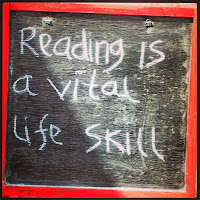Maintaining Student Reading Across the Summer Break

Annie Dillard in her book, The Writing Life , suggests that a writer must be careful what he or she reads, for that is what will be written. The writer is careful of what he or she learns, because that becomes what is known. But what happens when the reading and consequently the writing ceases? Reading is essential to every writer, so when the school year ends it is critical that these developing skills continue to be fostered in our youngest literate citizens. Reading research indicates that many children’s reading abilities decline between the end of one school year and the beginning of the next when reading ceases. Some parents see reading as the province of the school. It may not be valued in the home. Amazingly, this phenomenon of summer reading loss can be offset by reading as few as 4- 5 books across the summer break. (Rinn 2006) Professors, Richard Allington and Anne McGill-Franzen completed a three-year study (2001-2004) showing a significantly higher level...










